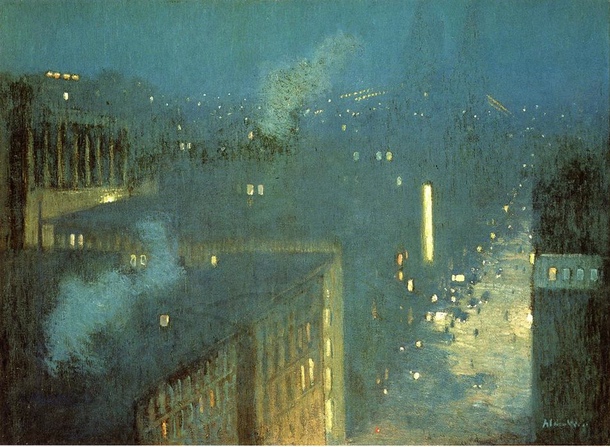
The policeman buys shoes slow and careful; the teamster buys gloves slow and careful; they take care of their feet and hands; they live on their feet and hands.
The milkman never argues; he works alone and no one speaks to him; the city is asleep when he is on the job; he puts a bottle on six hundred porches and calls it a day’s work; he climbs two hundred wooden stairways; two horses are company for him; he never argues.
The rolling-mill men and the sheet-steel men are brothers of cinders; they empty cinders out of their shoes after the day’s work; they ask their wives to fix burnt holes in the knees of their trousers; their necks and ears are covered with a smut; they scour their necks and ears; they are brothers of cinders.
—Carl Sandburg, Psalm of Those Who Go Forth Before Daylight, first published in Cornhuskers (1918)
Listen to Aaron Copland’s Clarinet Concerto (1948), Benny Goodman, who commissioned the work, plays the clarinet and the composer conducts the Los Angeles Philharmonic Orchestra. This is easily one of the most significant works of American orchestral music of the last century. It has an unusual structure, with two movements linked by a sustained clarinet cadenza that demands true virtuosity. The tone of the entire piece is somber and introspective and the melodies produce cascading senses of sadness, joy and serenity. Copland’s orchestra doesn’t include the percussion pieces needed for jazz, but he manages jazz-like effects just the same.


